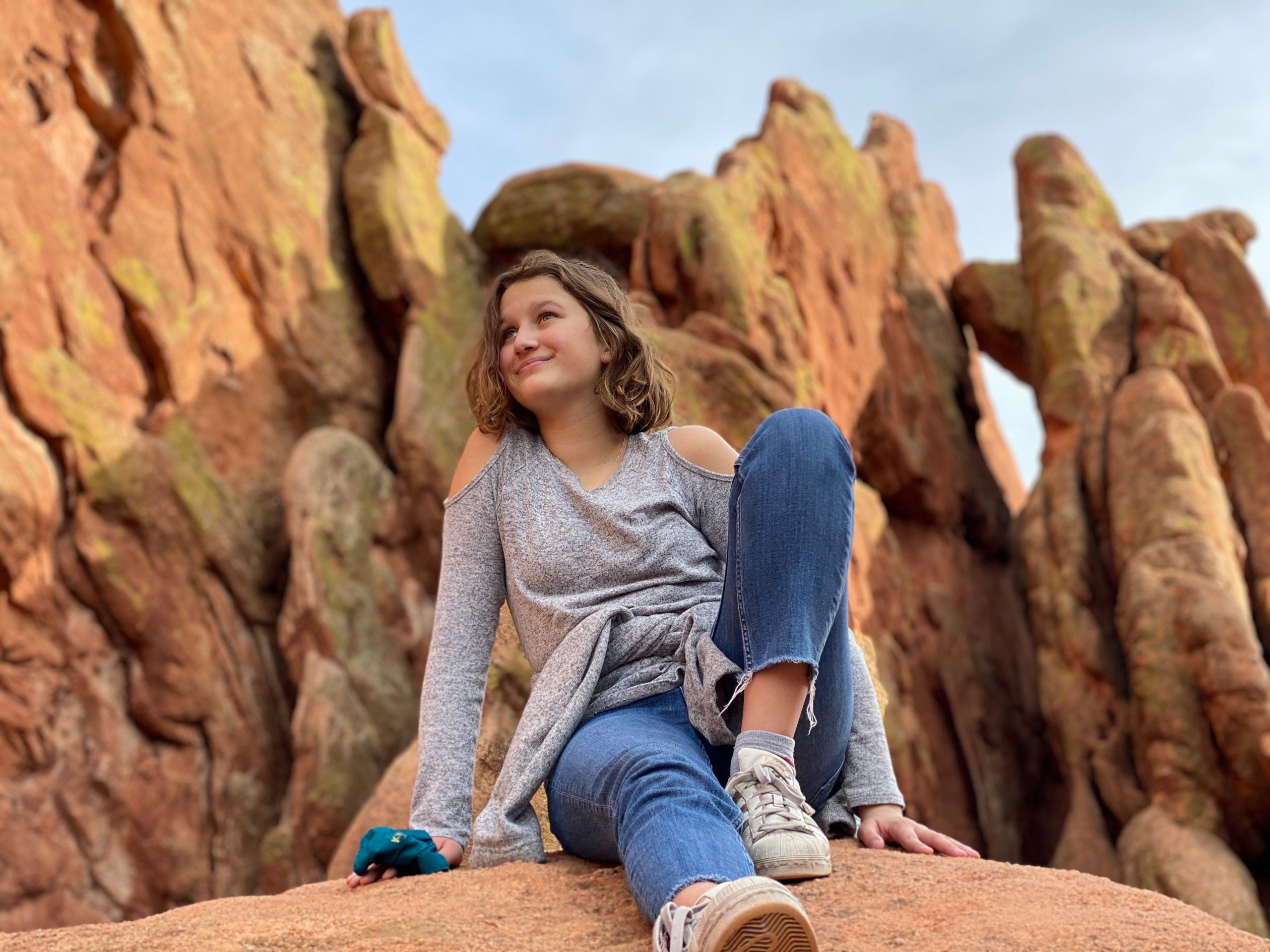
Twelve-year-old Kate Hartman, of Denver, experienced anxiety even before she started Kindergarten. It escalated in third grade when she said she was bullied by classmates.
“I was just in a terrible place,” she said. “I felt scared of myself because I felt like I wasn't capable or worthy of anybody's love.”
Eventually, Hartman said, she confided in her mother that she thought she should end her life. Her parents sought help. Through extensive therapy, Hartman said she learned how to remind herself of the good things in life and to take deep breaths to calm her anxiety.
The pandemic has only worsened the mental health of many children around the state. More and more are reporting increased anxiety and stress caused by the lockdown. And state health leaders are trying to find a way to help kids cope.
It’s not uncommon for children as young as five or six years old to struggle with anxiety, said Dr. Jenna Glover, the director of psychology training at Children’s Hospital Colorado.
“Especially in the last several years and definitely over the pandemic...we are seeing younger kids...who are already having mental health challenges,” said Glover.
She said the pandemic was “fuel to the fire.”
“We went from a troubling state to truly a state of crisis,” Glover said. “Kids have been going through chronic stress, they've been dealing with unpredictability [and] a sense of hopelessness has set in.”
A ‘State of Emergency’ for youth mental health
Last month, Glover, along with other mental health experts and doctors at Children’s Hospital Colorado declared a “State of Emergency” for youth mental health. They called on lawmakers, including Governor Jared Polis to prioritize the issue.
The state will now set aside about $30 million dollars to pay for more services, including beds for children in crisis, along with yearly mental health check-ups for children and for therapy for kids who need it, thanks in part to lobbying efforts. The federal government is allocating an additional $5 million to the state for youth mental health.
The funding comes at a time when the number of children dying by suicide is increasing rapidly and mental health clinicians are seeing at least double the rates of anxiety and depression compared to pre-pandemic levels.
Dr. David Brumbaugh, Chief Medical Officer at Children’s Hospital Colorado and a pediatric gastroenterologist, said he saw the faces behind those numbers.
“We had kids backing up in our emergency department waiting [for] hours...days, for the type of acute mental health interventions that they needed,” he said.
Brumbaugh said along with many more in-patient beds, priorities should include more support for kids who need in-home services or partial hospitalization, and he said, staffing is at a critical point.
“If we were to open 20 additional inpatient beds tomorrow, we wouldn’t be able to staff them,” said Brumbaugh. “So we need to think creatively about training programs, loan forgiveness...and programs that can attract people to the state to do this very important work.”
Pandemic pressures have turned into personal stress for kids
Hartman, whose struggles began long before the pandemic, said her mood deteriorated when her school moved to remote learning and she was isolated from her friends.
But beyond those feelings, kids are tuned into the pressures the pandemic has placed on their families.
Psychologist Jenna Glover said kids have also absorbed the financial and medical strains families have dealt with over the past year.
“Some of them have had family members lose jobs. Some of them have lost family members,” said Glover. “The family system is being stressed in a way that we have never seen before and that has a major impact on kids' resiliency.”
Twelve-year-old Hartman, who now advocates for youth mental health through Children’s Hospital Colorado, said her parents played a critical role in getting her through the darkest points of her struggles and getting her the help she needed.
But Glover says, while Kate Hartman was able to share her pain with her parents, some children struggle with talking about their problems and can be good at hiding them.
Kari Eckert, who’s 15-year-old son Robbie died by suicide in 2018, said she and her husband were blindsided by their son’s suicide.
“He wasn’t comfortable sharing. He [seemed] happy. He had a smile on his face,” Eckert said. “If there's anything that we could've changed, it was that we would have wanted Robbie to know that he could have come to us with anything.”
Eckert, who along with her husband Jason, started the suicide prevention organization, Robbie’s Hope, said she wishes they had emphasized that more with Robbie.
“One of our messages at Robbie's Hope is ‘it's okay to not be okay.’ It's okay to be human and to have human emotions,” she said.
Eckert recommends teachers begin sending this message as early as Kindergarten and kids be encouraged to talk about their feelings, if not to their parents, then to a trusted adult.
For Hartman, her ultimate goal is to reduce the stigma around mental health so that it’s taken as seriously as physical health.
And Brumbaugh, of Children’s Hospital, agrees.
“We would never allow kids to spend hours in an emergency department waiting for definitive treatment for leukemia or for pneumonia,” Brumbaugh said. But somehow, we don't have the same mindset around mental health, and I think that explains a lot of the issues we’re dealing with today.”
If you are in crisis or are looking for mental health services for you or someone you know, call the Colorado Crisis Services hotline. Call 1-844-493-8255 or text “TALK” to 38255 to speak with a trained counselor or professional. Counselors are also available at walk-in locations or online to chat between 4 p.m. and 12 a.m.









